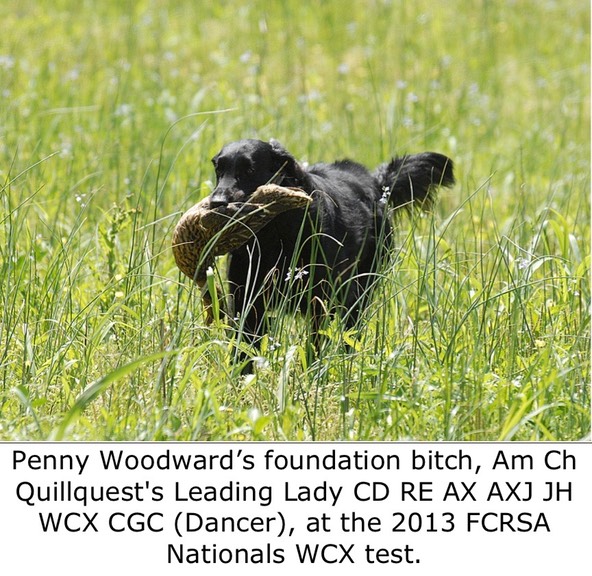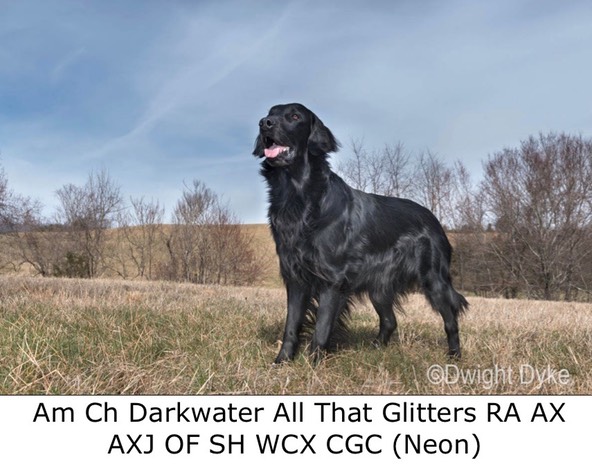1. What is your relationship with the breed? When did you get your first Flatcoat?
I acquired my first flatcoat in 1998 as a companion and hunting partner. At the time my husband and I owned a golden x lab mix who was not too keen to the gun. We did quite a bit of dove hunting and felt that having a dog with us would be ideal since it was often difficult to find these birds in high cover and/or corn rows. I had contemplated different retriever breeds but I liked the elegance of the flatcoat and decided on this particular breed.

2. What do you like the most in a working Flatcoated Retriever?
I like their hunting style and perseverance. Watching them work the fields with their happy, but deliberate, attitude is a pleasure. They seem to have a better nose than many of the retrievers and often can come up with game that some of the Labradors have not been able to find. Most flatcoats quarter naturally which is a bonus but it can also take them into trouble if their mind is deep into it.
3. What abilities do you look for when you are breeding a working Flatcoated Retriever?
I look for dogs which are intelligent and like to carry things. A dog that will work with you that is not too headstrong and enjoys training. I will also look at dogs in the pedigrees to see what achievements they have earned and if the progeny from these dogs retain the working ability. I feel it is important to have a well put together dog that is strong so it is capable of sustaining the rigours required to do the job in the field and waters. I feel very strongly that the lines should have vigour and longevity. This breed does not mature early and it is a poor thing to lose them young.
4. What could be done to promote the Flatcoat as a field trial/working test dog?
I feel this is difficult to answer. Reason due to the way the retriever tests/trials are designed today, at least here in America, they deviate from the natural hunting abilities of the dogs and it is more a test of control. Because the flatcoat was bred as a pickup dog, trying to train out the natural quartering of the breed is difficult, where as a Labrador will have the edge as they don’t have this tendency. Way too often we lose the flatcoat before it can be finished where it is able to run in and be successful at high levels in these difficult tests.

5. How does a working Flatcoat excel as a picking up dog?
Most I have known have been intelligent and good markers. Having an excellent nose, adding the memory and natural quartering, they often find game where other retrievers fall short. We do need to improve the breed working in water. There are lines that do not have the confidence in the water to match the Labrador. Some dogs, no matter how strong they are on land, break down when it comes to working in water.
6. What’s important to emphasize when training a Flatcoated Retriever?
Keep an open mind and train to the dog, not some written procedure from a manual. This breed is intelligent and their style is a bit different than the lab or chessie. Never compare them to others. Be fair and patient. Make sure the dog knows what you are asking of it before pushing on or correcting. Watch the dog and ask yourself what is it he/she is trying to tell me? Does she understand what I am asking of her?
Penny Woodward